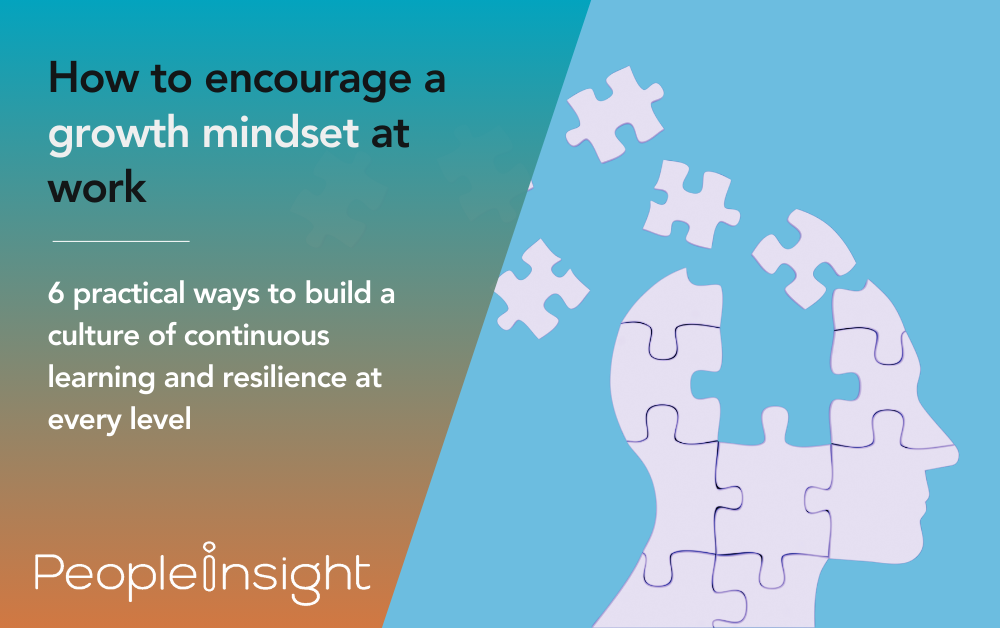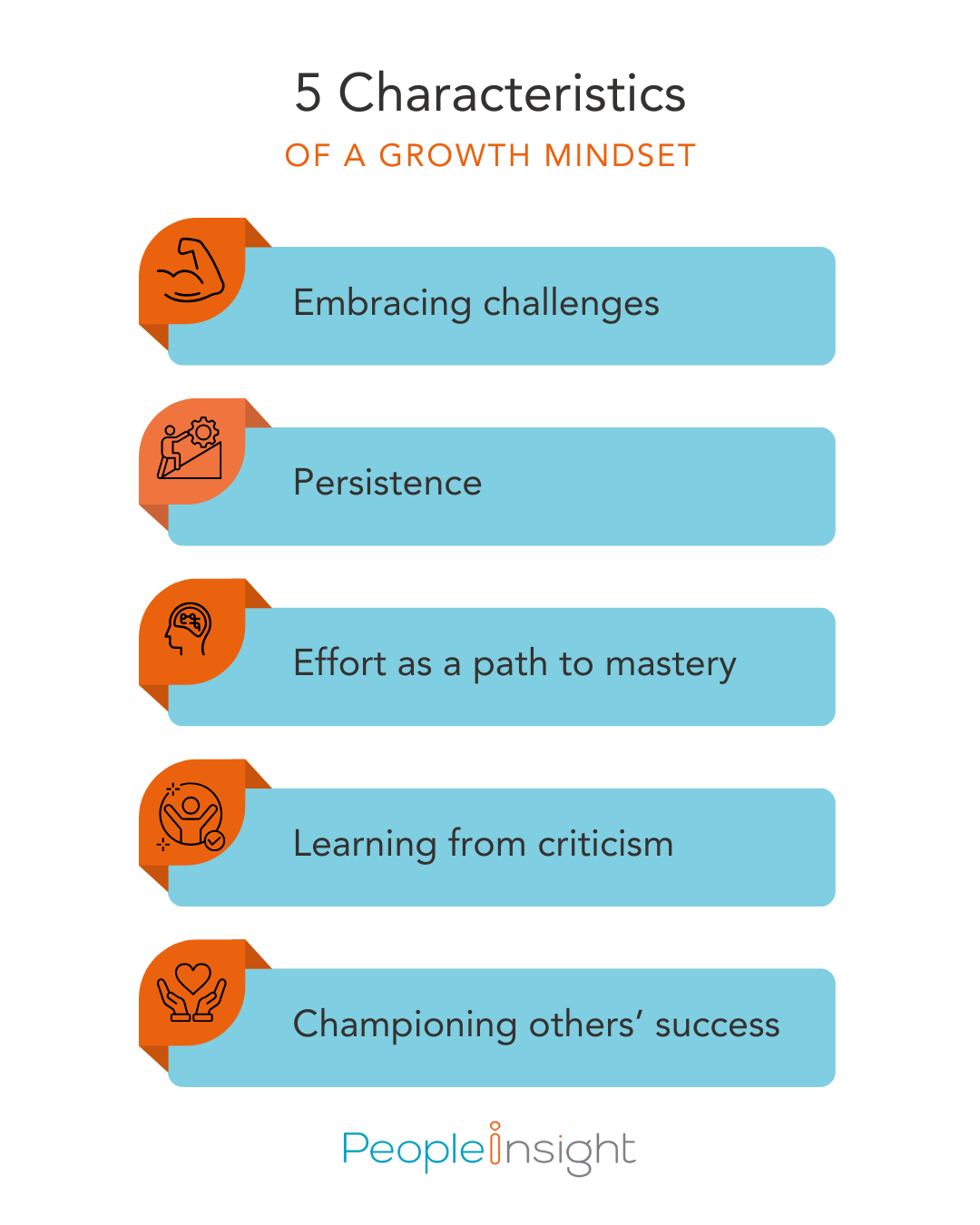
A quick insight: A growth mindset at work helps people see challenges as opportunities to learn, adapt and improve rather than threats to avoid. When leaders model curiosity, learning from feedback and resilience through setbacks, teams become more adaptable and confident. Encouraging growth mindsets strengthens capability, fuels continuous improvement and supports a culture where people feel motivated to stretch themselves and innovate.
A team’s ability to develop, succeed and innovate often depends less on raw talent and more on the attitudes shaping day-to-day behaviours. Among these, a growth mindset has long been shown to be one of the most influential qualities for long-term success.
Organisations that value continuous improvement must make it a priority to encourage this way of thinking — not only in employees but particularly among leaders, who set the tone for the entire workplace.
Related: What are the Goleman leadership styles (And which one are you?)
The concept of a growth mindset was first introduced by psychologist Carol Dweck. It describes the belief that intelligence, skills and abilities can be developed over time with effort, learning and persistence. By contrast, a fixed mindset assumes that our abilities are static and cannot change meaningfully.
Employees with a fixed mindset might shy away from challenges for fear of failure, believing that struggling is a sign of inadequacy. Those with a growth mindset, on the other hand, view challenges as opportunities to stretch their capabilities. Mistakes are not markers of inability — they are lessons in disguise. Understanding this, it’s easy to see the connection between psychological safety and a growth mindset. When employees know that mistakes won’t necessarily result in harsh punishment, they feel secure in the ability to experiment and take risks in order to improve outcomes.
A growth mindset encourages openness to feedback, resilience in the face of obstacles and a genuine drive to learn. It is easy to see how this difference can dramatically shape an organisation’s culture, while driving some pretty incredible results.
To embed a growth mindset at work, it is important first to recognise the five traits that define it:

Each of these characteristics supports personal development and drives performance at every organisational level.
When organisations encourage a growth mindset, the results can be transformational. Research from the Harvard Business Review found that employees in growth-mindset companies are 47% likelier to say that their colleagues are trustworthy, 49% likelier to say their organisation encourages innovation and 34% likelier to feel a strong sense of ownership and commitment to the company’s goals.
However, many organisations are falling short. Our extensive cross-sector benchmark data shows that over a quarter of employees do not agree that they receive adequate training and development to do their job effectively. Similarly, only 65% of employees say their manager takes the time to coach them and develop their skills. Perhaps even more telling, only 57% agree that their career development aspirations are being met at their current company.
These figures highlight a widespread gap between the development employees want and what they experience in reality. Without consistent growth opportunities, employees can quickly become disengaged, limiting the organisation’s potential for innovation and progress. Encouraging a growth mindset — and providing the support to back it up — is exactly what is needed if you’re looking to reverse this trend.
Let’s take a second to discuss leadership and the growth mindset — because this is an area in which they are particularly influential. When leaders model resilience, learning and openness to feedback, they create a safe environment for employees to do the same. In contrast, leaders with a fixed mindset risk creating a blame-oriented, defensive culture where innovation is stifled.
360-degree feedback and a growth mindset are natural partners. On its own, feedback can sometimes feel threatening, particularly if an individual has a fixed mindset. However, when employees view feedback through a growth-focused lens, it quickly becomes an opportunity rather than a critique.
360 feedback provides individuals with a rounded view of their strengths and areas for improvement, drawn from a number of valuable sources. When individuals approach this information with a growth mindset, they are more likely to act on it constructively, leading to stronger performance and personal development.
Organisations that combine regular 360 feedback with initiatives that encourage a growth mindset create a culture of transparency, continuous learning and resilience. Employees become more adaptable and open-minded, strengthening the organisation’s overall agility and effectiveness.
So now we move on to the ‘how’. Building a growth mindset at work requires focused, deliberate strategies and consistent reinforcement across all levels of the organisation. While enacting these strategies isn’t exactly easy, and change doesn’t happen overnight, these are great goals to work towards if you want all employees in your organisation to flourish and reach their potential.
Below are some practical ways to encourage a growth mindset among employees and leaders alike.

Though it might sound obvious, it has to be said — offering diverse training options, mentoring programmes and career development pathways signals that growth is expected and supported. It is important to frame learning as an ongoing process rather than a remedial measure — do what you can to get employees truly excited about learning, and explore with them what gaps in their skill sets they’re keen to work on.
Leaders should talk openly about their own failures and what they learned from them. Normalising mistakes helps employees view setbacks as valuable experiences rather than career-limiting events.
Publicly acknowledging hard work, persistence and thoughtful risk-taking — even when results fall short — reinforces the message that effort is valued. This encourages employees to take initiative without fearing judgment.
Leaders must embody the mindset they wish to see. This means actively seeking feedback, admitting when they do not have all the answers, and showing a willingness to change and improve.
Creating systems and spaces where employees can share insights, tips and experiences promotes collective growth. It also helps individuals see learning as a communal activity, not a solitary pursuit.
Make this part of your performance management process. Rather than focusing solely on results, appraisals should include discussions about how employees approached challenges, adapted to feedback and invested in their own development.
A growth mindset is one of the strongest drivers of adaptability, resilience and innovation in the workplace. Its principles align naturally with the spirit of 360-degree feedback, where continuous development and learning are celebrated.
360 feedback, when approached with a growth mindset, becomes a catalyst for real transformation. It supports the kind of open, positive culture where individuals are not only able to adapt to change, but lead it.
If you are ready to see how a 360 feedback programme can help nurture a growth mindset in your organisation, we would love to support you. Get in touch today to book your free demo of our 360 feedback platform.
